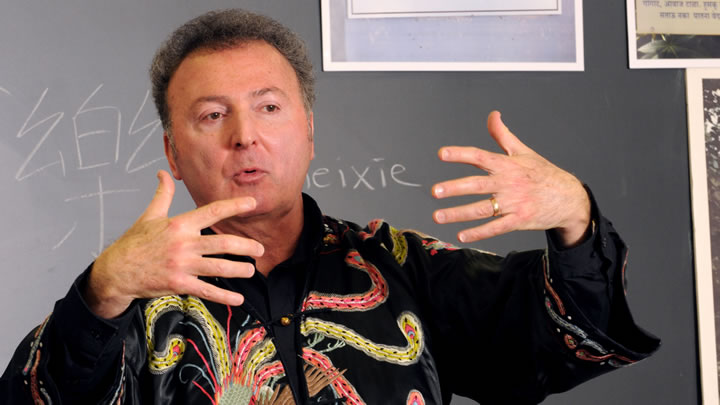The Japanese program has invited the previously cut adjunct professor Yoshiko Tsuda to return in the fall after the National Endowment for the Humanities (NEH) allowed an amendment to the Asian Studies endowment. The amendment permits program director Larry Herzberg to continue employing both an adjunct professor and a teaching intern for the Japanese program.
Last semester’s cut left the Asian Studies program with one full-time professor, causing students and the department to fear for the program’s long-term sustainability.
“It made me feel like the Japanese program was getting the short end of a stick in a sense, like people weren’t really giving it any legitimacy,” said first-year Japanese major Zachary Nowak.
The NEH grant has allowed the program to host six guest speakers a year, supply Asian books and films for students and cover interim trips and faculty travel. Now, the grant, instead of Calvin itself, will also fund both an adjunct and an intern.
Though Herzberg has invited Tsuda to return, she has applied for full-time positions elsewhere because of Calvin’s “inability to offer her anything beyond one course per semester, rather than the two courses per semester she taught for us until recently,” he said.
If enrollment in the 300-level courses, which Tsuda or a new adjunct will teach, rises above ten students — unlikely based on current trends — the college would pay the adjunct full pay. For a smaller class size, the grant will cover the adjunct’s prorated pay.
Although the adjunct will teach only one class a semester, this will return professor Schau’s course load to a normal number of credits.
Because of the amendment, the Asian Studies Advisory Committee, according to Herzberg, thinks the department will even have enough funds to hire a new full-time faculty member to teach Asian religion, philosophy and history.
However, the NEH amendment, as it stands, is only certain for the next five years. “Our hope,” said Herzberg, “is that by then the enrollments in Japanese language courses will rise again to the levels they enjoyed some years ago, which will encourage the college to resume paying for them.” If this isn’t the case, they will ask for an extension.
Being able to keep not only an adjunct but the teaching intern is vital to students’ learning, according to Herzberg. “It is invaluable to have native speakers teaching at least the upper-level courses of a language, especially for languages as different from English as are Chinese and Japanese.”
A teaching assistant, close in age to students, Herzberg continued, “not only provides valuable linguistic practice,” he said, “but allows them to get real insight into the perspective of young adults in the target culture.”
Nowak agreed. “Culturally speaking, I’ve learned a lot from Satsuki [Nagata],” the current Japanese intern, “a lot more from Satsuki than I have from class, even though I learn a lot of culture from class, too.”
If professor Tsuda decides to return, students will welcome her back. “She was a little strict,” said Nowak, “but honestly the way that she taught forced me to rise above what I knew before in terms of study habits. I think I’m way better as a Japanese student because of it.”
The Japanese program is hosting a cultural event May fourth, offering free sushi and cultural activities.









